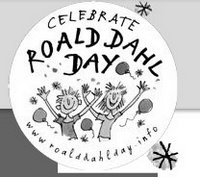This looks great and I will certainly be participating. Check it out! This is posted again for those of you who don't click on links. Here is all the gory detail.
Announcing the first annual "K12 Online 2006" convention for teachers, administrators and educators around the world interested in the use of Web 2.0 tools in classrooms and professional practice. This year's conference is scheduled to be held over two weeks, Oct. 23-27 and Oct. 30- Nov. 3 with the theme
"Unleashing the Potential." A call for proposals is below.
There will be four "conference strands"-- two each week. Two presentations will be published in each strand each day, Monday - Friday, so four new presentations will be available each day over the course of the two-weeks. Each presentation will be given in podcast or screencast format and released via the conference blog (URL: TBA) and archived for posterity.
THE FOUR STRANDS ARE:
Week 1
Strand A: A Week In The Classroom
These presentations will focus on the practical pedagogical uses of online social tools (Web 2.0) giving concrete examples of how teachers are using the tools in their classes. They will also show how teachers plan for using these tools in the delivery of their curricular objectives.
Strand B: Basic/Advanced Training (one of each per day)
Basic training is "how to" information on tool use in an educational setting, especially for newcomers.
Advanced training is for teachers who have already started using Web 2.0 tools in their classes and are looking for: (a) advanced technology training (eg. how to write your own blog template or hack existing ones), (b) new tools they can make use of in their classes, (c) teaching ideas on how to mash tools together to create "something new," (d) a pedagogical understanding of how technologies such as Weblogs, wikis, podcasts, social bookmarking sites, RSS feeds and others can deepen learning and increase student achievement, or (e) use of assessment tools to measure the effectiveness of Read/Write Web technologies in their personal practice and with their students.
Week 2
Strand A: Personal Professional Development
Tips, ideas and resources on how to orchestrate your own professional development online; the tools that support Professional Learning Environments (PLEs); how to create opportunities to bring these technologies to the larger school community; how to effectively incorporate the tools into your personal or professional practice; or how to create a supportive, reflective virtual professional community around school-based goals.
Strand B: Overcoming Obstacles
Tips, ideas and resources on how to deal with issues like: lack of access to tools/computers, filtering, parental/district concerns for online safety, and other IT concerns while trying to focus on best practice in the use of Web 2.0 tools.
CONVENERS & KEYNOTES
For organization purposes, each strand is overseen by a conference convener who will assist and coordinate presenters in their strand. The first presentation in each strand will kick off with a keynote by a well known educator who has distinguished his/herself and is knowledgeable in the context of each topic. This year's conveners and keynote presenters are:
A Week In The Classroom
Convener: Darren Kuropatwa
Keynote: Bud Hunt
Bud Hunt teaches high school language arts and journalism at Olde Columbine High School in Longmont, Colorado. He is a teacher-consultant with and the Tech Liaison for the Colorado State University Writing Project, an affiliate of the National Writing Project, a group working to improve the teaching of writing in schools via regular and meaningful professional development. Bud is also the co-editor of the New Voices column of English Journal, a publication of the National Council of Teachers of English. A consumer of copious amounts of New Media, Bud blogs and podcasts about his practice and larger educational issues at http://www.budtheteacher.com.
Basic/Advanced Training
Convener: Sheryl Nussbaum-Beach
Keynote: TBA
Personal Professional Development
Convener: Will Richardson
Keynote: Ewan McIntosh
Ewan McIntosh is an educational technologist and teacher of French and German. Based in the Edinburgh area of Scotland he frequently works around the UK and Europe, leading student and teacher workshops and conferences. He is an experienced workshop facilitator in the area of Web 2.0 technologies in education across stages and curricular areas. Ewan blogs at http://edu.blogs.com
Overcoming Obstacles
Convener: TBA
Keynote: Anne Davis
Anne is known for seeing the educational possibilities in the use of weblogs with students in classrooms, having implemented wonderful ideas and weblog projects with students and teachers in K-12 classrooms and at the university level. She currently works at Georgia State University in the Instructional Technology Center in the College of Education as an Information Systems Training Specialist. Her weblog, EduBlog Insights is a co-winner of the Best Teacher Blog in the second international Edublog Awards, a web based event that recognizes the many diverse and imaginative ways in which weblogs are being used within education.
CALL FOR PROPOSALS
We'd like to invite you to submit a proposal to present at the conference. If you have something you'd like to share with the community, both people who are new to blogs and/or experienced bloggers please email the appropriate conference convener above with your ideas. The deadline to submit a proposal (just the proposal, not the finished product) is September 30, 2006. One of us will contact you to finalize the date of your presentation. Your presentation may be delivered in any web-based medium (including but not limited to...podcasts, PowerPoint files, blogs, websites, wikis, screencasts, etc.) and must be emailed to your assigned conference convener one week before it goes live, (see above strands) so that it can be uploaded to the server.
The conference organizers are:
Darren Kuropatwa
Darren Kuropatwa is currently Department Head of Mathematics at Daniel McIntyre Collegiate Institute in Winnipeg, Manitoba, Canada. He is known internationally for his ability to weave the use of online social tools meaningfully and concretely into his pedagogical practice and for "child safe" blogging practices. He has more than 20 years experience in both formal and informal education and 13 years experience in team building and leadership training. Darren has been facilitating workshops for educators in groups of 4 to 300 for the last 10 years. Darren's professional blog is called A Difference (http://adifference.blogspot.com).
Sheryl Nusbaum-Beach
Sheryl is a technology/education consultant for the National Education Association (NEA), the Center for Teaching Quality, SRI International, the Virginia Community College System, the Virginia Department of Education, the Miami-Dade Public Schools, the Alabama Best Practices Center and adjunct instructor in the School of Education at The College of William and Mary. She has had several journal articles and book chapters published, been featured on public broadcasting television and radio shows, and is a regular presenter at local, state, and national conferences speaking on topics of homelessness, teacher leadership, virtual community building, and 21st Century learning initiatives. Sheryl blogs at 21st Century Collaborative (http://21stcenturylearning.typepad.com/blog/).
Will Richardson
Will Richardson is known internationally for his work with educators and students to understand and implement instructional technologies and, more specifically, the tools of the Read/Write Web into their schools, classrooms and communities. A public school educator for 22 years, WillÃ’s own Weblog (Weblogg-ed.com) is a primary resource for the creation and implementation of Weblog technologies on the K-12 level and is a leading voice for school reform in the context of the fundamental changes these new technologies are bringing to all aspects of life. Will is the critically acclaimed authour of the best-selling book Blogs, Wikis, Podcasts and Other Powerful Tools for Classrooms (March 2006, Corwin Press).
Conference Tags: k12online, K12online06
If you have any questions about any part of this, email one of us:
Darren Kuropatwa
Sheryl Nusbaum-Beach
Will Richardson
Please duplicate this post and distribute it far and wide across the blogosphere. Feel free to republish it on your own blog (actually, we'd really like people to do that ;-) ) or link back to this post (published simultaneously on all our blogs).
Tags:
k12online,
k12online06









